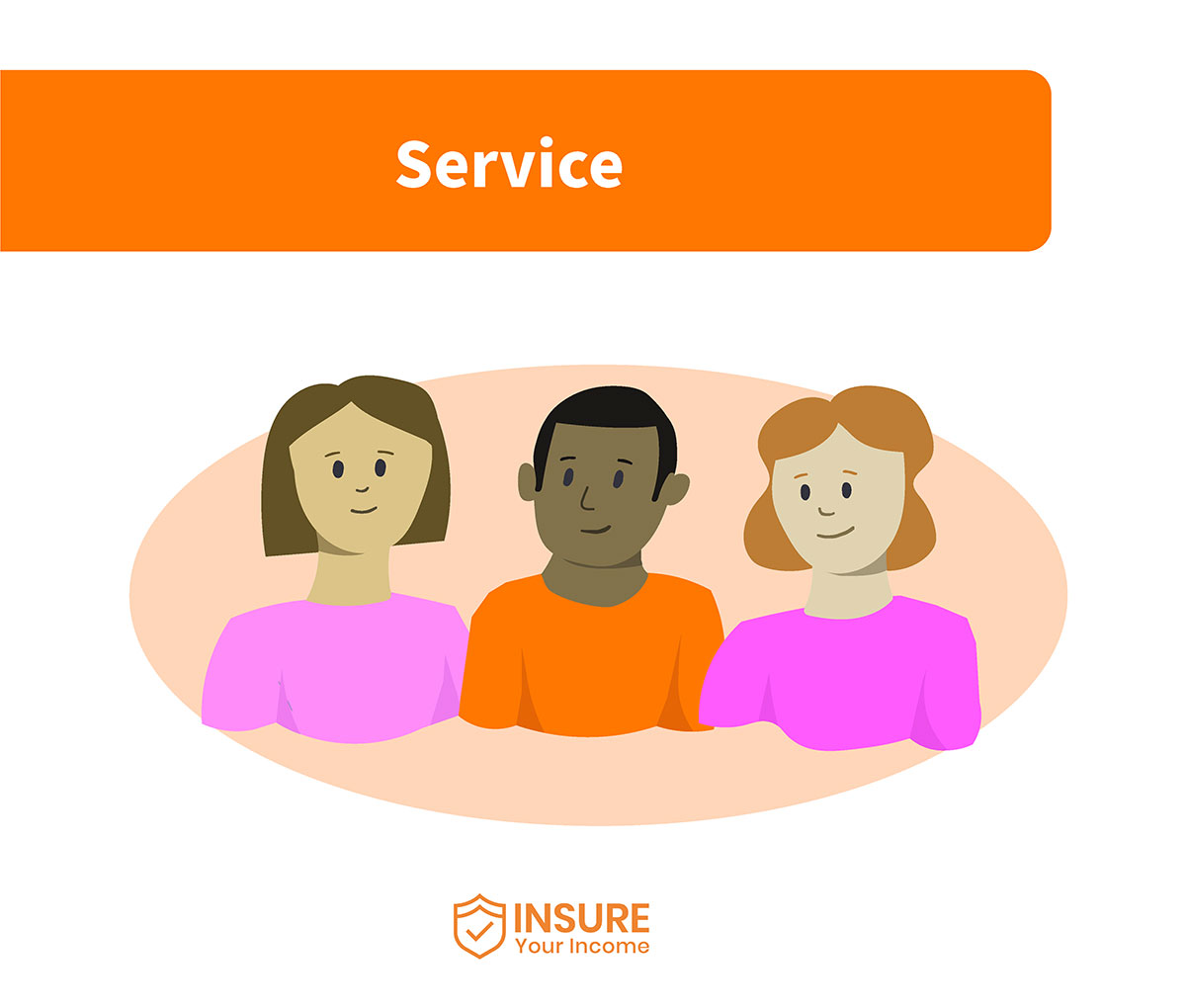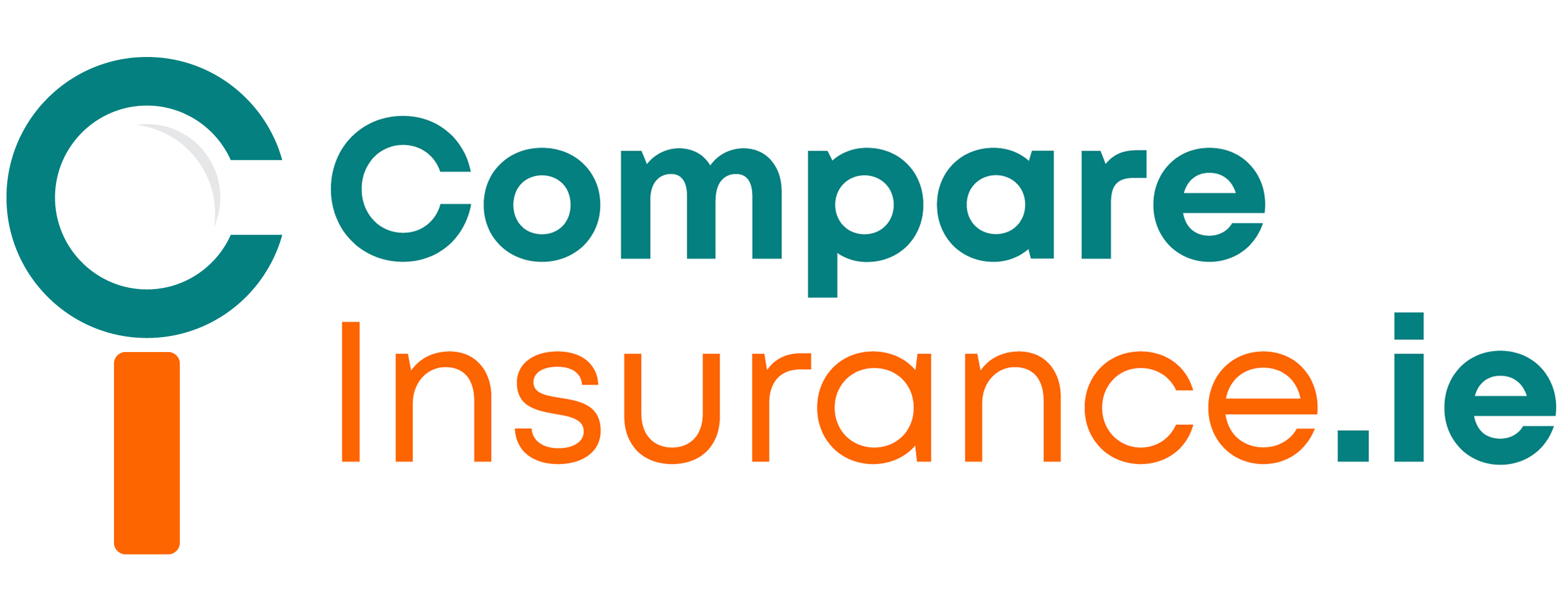Income insurance protects your income if you unexpectedly can’t work due to injury or illness.
It’s an easy way to help protect your financial future, and ensure your lifestyle and family are protected in any event.

Can an Area Retail Manager get income protection insurance?
Area retail managers do not experience a high level of risk at work. Their work is predominantly sedentary, and focused on administrative and managerial tasks. Considering, the minimal level of risk faced by area retail managers, those in the profession qualify for first-class income protection insurance.
Status: low risk- insurable
Can a Cinema Worker get income protection insurance?
Cinema workers are exposed to a relatively low level of risk at work but do come into contact with several hazards on a day-to-day basis. Cinema workers can be exposed to a slip, trip, and fall accidents when escorting patrons to their seats and carrying food and drinks. Cinema workers may also spend a large portion of their working hours standing, opening them up to pain and strain over a long period of time. To account for the possibility of such risks, cinema workers qualify for second-class income protection insurance.
Status: Mild risk- insurable
Can a Coal Merchant (no manual work) get income protection insurance?
A coal merchant who does not engage in manual work experiences a mild level of risk at work. Coal merchants, who are not involved in manual work are generally sedentary workers, carrying out managerial and administrative functions. However, exposure to coal means merchants can experience negative health impacts such as breathing and lung disorders from the inhalation of coal particles. Accounting for such risks, coal merchants qualify for second-class income protection insurance.
Status: Mild risk- insurable
Can a Double Glazing Salesperson get income protection insurance?
A double glazing salesperson faces a mild level of risk simply by working with glass products, opening up the potential of injuries such as cuts and lacerations. Considering the level of risk involved in the occupation, double-glazing salespeople qualify for second-class income protection insurance.
Status: Mild risk- insurable
Can a Draper get income protection insurance?
A draper holds a number of duties with varying levels of risk. Drapers who carry out sewing, stitching, and design are more at risk of injury from needles, knives, and scissors. Drapers are also at risk of injury from manual handling. Considering the level of risk involved in the occupation, drapers qualify for second-class income protection insurance.
Status: mild risk- insurable
Can a Fashion Designer get income protection insurance?
Fashion designers are primarily sedentary workers, designing clothing in office and studio settings. They face little occupational risk and therefore qualify for the highest level of income protection insurance.
Status: low risk- insurable
Can a Fishmonger get income protection insurance?
Fishmongers face a mild level of risk at work. Fishmongers can suffer an injury from the manual handling of stock. Working with ice and water also means fishmongers are more prone to slip, trip, and fall accidents, as floor surfaces often become wet. To account for these risks, fishmongers qualify for second-class income protection insurance.
Status: Mild risk- insurable
Can a Florist get income protection insurance?
Florists can encounter occupational risks that impact their income protection insurance. Such risks include exposure to pesticides, working with sharp tools, bites and stings from insects and ergonomic hazards such as working in uncomfortable positions and performing repetitive tasks. Considering the risks involved, florists qualify for second-class income protection insurance.
Status: Mild risk- insurable
Can a Fruiterer get income protection insurance?
Fruiterers come into contact with a moderate level of risk at work. Biological hazards such as pathogenic fungi, bacteria, and viruses in fruits can pose a health threat to the worker. Fruiterers also are at work of injury from manual handling. Accounting for these risks, fruiterers qualify for third-class income protection insurance.
Status: Moderate risk- insurable
Can a Furniture designer get income protection insurance?
Furniture designers operate at a mild level of risk. While much of their work is sedentary, taking place in office and studio settings, furniture designers sometimes work with design materials such as paint and glue which can contain toxins, and engage in manual handling of furniture which can lead to injury. To account for these risks, furniture designers qualify for second-class income protection insurance.
Status: Mild risk- insurable
Can a Furrier get income protection insurance?
Zoonotic diseases are one of the greatest risks of being a furrier. Their job is to trim the furs and they have to work very close to the furs in order to perform their job. Thus, there are risks of getting infected by germs or diseases from the animal, which may be transmitted through airborne droplets. The risk increases if there isn’t proper ventilation in a studio where furriers work. This can lead to respiratory problems like cold or flu. To account for such risks, furriers qualify for third-class income protection insurance.
Status: Moderate risk- insurable
Can a Greengrocer get income protection insurance?
Greengrocers face a mild level of risk at work. Greengrocers are occupationally exposed to pesticide residues. This can result in adverse health effects including allergic dermatitis and skin sensitization. Slip, trip, and fall accidents are common among greengrocers due to their tasks of handling heavy bags of vegetables and moving boxes of produce around. To account for this level of risk, greengrocers qualify for second-class income protection insurance.
Status: Mild risk- insurable
Can an Ice cream vendor get income protection insurance?
Ice cream vendors can be at risk for a number of things, including manual handling and ergonomic hazards. Ergonomic hazards include things like repetitive motions, awkward postures, and long periods of standing or sitting. Driving a van is also a potential occupational risk for ice cream vendors because it requires them to be behind the wheel for long periods of time, which can cause fatigue and of course a road accident in some instances. Considering the high level of risk involved in the occupation, ice cream vendors qualify for fourth-class income protection insurance.
Status: High risk- insurable
Can a Jeweller get income protection insurance?
Jewellers are exposed to several occupational hazards. These include exposure to mercury and other toxic substances, strong acids or bases, dust and fumes, and radiation which can all lead to negative health effects. Considering such risks, jewellers qualify for second-class income protection insurance.
Status: Mild risk- insurable
Can a Jewellery Maker and Repairer get income protection insurance?
Jewellery makers and repairers are exposed to a moderate level of risk at work. Working with sharp and heavy tools to make jewellery can lead to injuries. Jewellery makers also often work with heat and fire for welding, which can lead to burns and health issues from smoke inhalation. Considering the level of risk involved in the job, jewellery makers and repairers qualify for third-class income protection insurance.
Status: Moderate risk- insurable
Can a Kennel Worker get income protection insurance?
Bites and scratches from animals are a common occupational risk for kennel attendants. This is especially true for those who work in a shelter or animal control facility, where there are more animals and more dangerous animals. Kennels workers are also more at risk of contracting zoonotic diseases. Considering the level of risk involved in the job, kennel workers qualify for third-class income protection insurance.
Status: Moderate risk- insurable
Can a Leisure Center Manager get income protection insurance?
Leisure center managers are primarily sedentary workers focusing on overseeing staff and managerial functions. However, operating in a leisure center heightens the chance of injuries as such working areas are prone to slippery surfaces and hazards. Accounting for these risks, leisure center managers qualify for second-class income protection insurance.
Status: Mild risk- insurable
Can a Milk Delivery Person get income protection insurance?
A milk delivery person operates at a high level of risk by operating a delivery car or van which opens up the risk of road accidents (injuries from which can be very serious and even fatal). A milk delivery person also engages in manual handling of heavy items on a daily basis which can lead to injury and health issues.
Status: High risk- insurable
Can a Newsagent get income protection insurance?
Newsagents work in generally safe conditions but can face a mild level of risk when at work. Newsagents will oftentimes engage in manual handling of loads of papers and magazines, which can lead to injury and pain. Newsagents may also come into contact with ergonomic hazards like standing for a long period of time or working in an uncomfortable position. Considering these risks, newsagents qualify for second-class income protection insurance.
Status: Mild risk- insurable
Can a Newspaper Vendor get income protection insurance?
Newspaper vendors are exposed to a number of occupational risks. Newspaper vendors are required to bend, stretch and lift while performing their tasks. This can lead to musculoskeletal disorders, such as back pain, shoulder injury, and rotator cuff injuries. Injuries from falls can result from dropping items or tripping over obstacles on the footpaths or roadways where delivery rounds take place. Oftentimes, vendors will operate vehicles for newspaper deliveries, which can lead to road accidents. To account for these risks, newspaper vendors qualify for fourth-class income protection insurance.
Status: High risk- insurable
Can an Office Cashier get income protection insurance?
Office cashiers are primarily sedentary workers, facing little to no occupational hazards when at work. Considering the low level of risk involved in the occupation, office cashiers qualify for first-class income protection insurance.
Status: Low risk- insurable
Can an Off-licensee get income protection insurance?
Off-licensees work in relatively safe conditions but can be exposed to a mild level of occupational risk. Off-licensees regularly engage in manual handling of stock which can lead to injuries. Off-licensees may also have to deal with harassment from patrons, which can turn violent. Accounting for such risks, off-licensees qualify for second-class income protection insurance.
Status: Mild risk- insurable
Can a Petrol Pump Attendant get income protection insurance?
The job of a petrol pump attendant is high risk. Workers are generally on their feet all day, and they’re exposed to loud vehicle sounds, constant honking, and the possibility of chemical hazards. Petrol pump attendants can be at risk of fires and explosions due to contact with volatile gasoline at work. They might also experience either temporary or permanent hearing loss from being exposed to loud vehicle sounds and constant honking and are at risk of being hit by moving vehicles. Considering these risks, petrol pump attendants do not qualify for income protection insurance.
Status: Declined- uninsurable
Can a Picture Framer get income protection insurance?
Picture framers are exposed to a number of occupational hazards. Such hazards include chemicals used to clean the work area or to remove dust from the materials, which can be toxic to inhale, fumes from glue and paints (acetone and methyl ethyl ketone), and damp or dusty working conditions that can lead to respiratory problems. To account for the level of risk involved in the occupation, picture framers qualify for third-class income protection insurance.
Status: moderate risk- insurable
Can a Picture Restorer get income protection insurance?
Picture restorers are exposed to a moderate level of risk. Working with paints, glues and solvents means restorers might become exposed to toxins, and respirable powders which can lead to respiratory problems, and skin ailments. Accounting for these risks, picture restorers qualify for third-class income protection insurance.
Status: moderate risk- insurable
Can a Retailer get income protection insurance?
Retailers experience a mild level of risk at work. Retailers tend to spend a large portion of their working day on their feet which can lead to health problems such as arthritis and back pain. Retailers often engage in manual handling of goods, which can lead to an accident. Workers also are open to slip, trip, and fall accidents in the workplace. To account for such risks, retailers are entitled to second-class income protection insurance.
Status: Mild risk- insurable
Can a Shop Assistant get income protection insurance?
Shop assistants are at risk of overexertion injuries due to the nature of their work – particularly in situations where they have to lift or carry heavy objects. Shop assistants may also be injured by slips, trips, and falls when engaged in tasks such as stocking shelves, cleaning, and preparing displays. Considering the level of risk involved in the occupation, shop assistants qualify for second-class income protection insurance.
Status: Mild risk- insurable
Can a Shop Manager get income protection insurance?
Shop managers operate at a mild risk level. Shop managers are at risk of a slip, trip, and fall accident, especially when carrying out cleaning duties or moving stock. Shop managers may also spend many hours on their feet, managing staff and different areas of the shop, leading to strain and pain over time. Accounting for these risks, shop managers qualify for second-class income protection.
Status: Mild risk- insurable
Can a Shopkeeper get income protection insurance?
Shopkeepers are exposed to a mild level of occupational risk. Shopkeepers are responsible for handling money and other valuable items. So, they are at risk of being robbed by thieves. Injuries can result from slips, trips, and falls or from violence from patrons. Hand and arm injuries may occur from grasping heavy items, reaching overhead to obtain merchandise and repetitive use of the fingers from cash transactions. Shopkeepers also face the risk of back injuries due to repeated lifting, pushing, and pulling of heavy items. Acknowledging these risks, shopkeepers qualify for second-class income protection insurance.
Status: Mild risk- insurable
Can a Sports Center Manager get income protection insurance?
Sports center managers operate at a mild risk level. While much of their work is sedentary, taking place within an office setting, working in a sports center means workers face a heightened risk of slip, trip, and fall accidents as they navigate areas cluttered with sports equipment. Sports center managers may also engage in the manual handling of heavy equipment, which can lead to injury. Accounting for such risks, sports center managers qualify for second-class income protection insurance.
Status: Mild risk- insurable
Can a Store Person get income protection insurance?
A store person is exposed to a mild level of risk at work. Oftentimes a store person will be responsible for the manual handling of stock, which can lead to strain, and back pain, and increase the risk of a fall. Working in a stockroom also means that workers are at risk of falling items of stock landing on them and causing injury. Considering the level of risk involved in the occupation, a store person qualifies for second-class income protection insurance.
Status: Mild risk- insurable
Can a Tailor get income protection insurance?
Tailors are exposed to a mild risk level. Tailors work with a number of potentially dangerous equipment in their work such as scissors, sewing machines, and needles. Tailors also tend to work in uncomfortable positions for a long period of time which can lead to negative health impacts. Taking these risks into account, tailors can qualify for second-class income protection insurance.
Status: Mild risk- insurable
Can a Travel Agent get income protection insurance?
Travel agents are primarily sedentary workers, carrying out their duties within an office r agency space. Travel agents face little to no occupational risk to their health, safety, or income and therefore qualify for first-class income protection insurance.
Status: Mild risk- insurable




